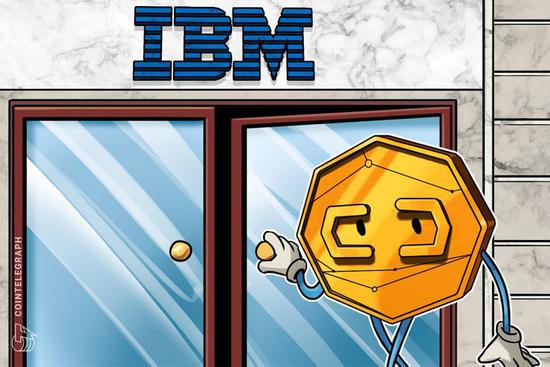
With the value of Bitcoin having fallen by around 70% since its peak late last year, the mother of all bubbles has now gone bust. More generally, cryptocurrencies have entered a not-so-cryptic apocalypse. The value of leading coins such as Ether, EOS, Litecoin, and XRP have all fallen by over 80%, thousands of other digital currencies have plummeted by 90-99%, and the rest have been exposed as outright frauds. No one should be surprised by this: four out of five initial coin offerings (ICOs) were scams to begin with.
Faced with the public spectacle of a market bloodbath, boosters have fled to the last refuge of the crypto scoundrel: a defense of “blockchain,” the distributed-ledger software underpinning all cryptocurrencies. Blockchain has been heralded as a potential panacea for everything from poverty and famine to cancer. In fact, it is the most overhyped – and least useful – technology in human history.
In practice, blockchain is nothing more than a glorified spreadsheet. But it has also become the byword for a libertarian ideology that treats all governments, central banks, traditional financial institutions, and real-world currencies as evil concentrations of power that must be destroyed. Blockchain fundamentalists’ ideal world is one in which all economic activity and human interactions are subject to anarchist or libertarian decentralization. They would like the entirety of social and political life to end up on public ledgers that are supposedly “permissionless” (accessible to everyone) and “trustless” (not reliant on a credible intermediary such as a bank).
Yet far from ushering in a utopia, blockchain has given rise to a familiar form of economic hell. A few self-serving white men (there are hardly any women or minorities in the blockchain universe) pretending to be messiahs for the world’s impoverished, marginalized, and unbanked masses claim to have created billions of dollars of wealth out of nothing. But one need only consider the massive centralization of power among cryptocurrency “miners,” exchanges, developers, and wealth holders to see that blockchain is not about decentralization and democracy; it is about greed.1
For example, a small group of companies – mostly located in such bastions of democracy as Russia, Georgia, and China – control between two-thirds and three-quarters of all crypto-mining activity, and all routinely jack up transaction costs to increase their fat profit margins. Apparently, blockchain fanatics would have us put our faith in an anonymous cartel subject to no rule of law, rather than trust central banks and regulated financial intermediaries.2
A similar pattern has emerged in cryptocurrency trading. Fully 99% of all transactions occur on centralized exchanges that are hacked on a regular basis. And, unlike with real money, once your crypto wealth is hacked, it is gone forever.
Moreover, the centralization of crypto development – for example, fundamentalists have named Ethereum creator Vitalik Buterin a “benevolent dictator for life” – already has given lie to the claim that “code is law,” as if the software underpinning blockchain applications is immutable. The truth is that the developers have absolute power to act as judge and jury. When something goes wrong in one of their buggy “smart” pseudo-contracts and massive hacking occurs, they simply change the code and “fork” a failing coin into another one by arbitrary fiat, revealing the entire “trustless” enterprise to have been untrustworthy from the start.
Lastly, wealth in the crypto universe is even more concentrated than it is in North Korea. Whereas a Gini coefficient of 1.0 means that a single person controls 100% of a country’s income/wealth, North Korea scores 0.86, the rather unequal United States scores 0.41, and Bitcoin scores an astonishing 0.88.1
As should be clear, the claim of “decentralization” is a myth propagated by the pseudo-billionaires who control this pseudo-industry. Now that the retail investors who were suckered into the crypto market have all lost their shirts, the snake-oil salesmen who remain are sitting on piles of fake wealth that will immediately disappear if they try to liquidate their “assets.”
As for blockchain itself, there is no institution under the sun – bank, corporation, non-governmental organization, or government agency – that would put its balance sheet or register of transactions, trades, and interactions with clients and suppliers on public decentralized peer-to-peer permissionless ledgers. There is no good reason why such proprietary and highly valuable information should be recorded publicly.
Moreover, in cases where distributed-ledger technologies – so-called enterprise DLT – are actually being used, they have nothing to do with blockchain. They are private, centralized, and recorded on just a few controlled ledgers. They require permission for access, which is granted to qualified individuals. And, perhaps most important, they are based on trusted authorities that have established their credibility over time. All of which is to say, these are “blockchains” in name only.
It is telling that all “decentralized” blockchains end up being centralized, permissioned databases when they are actually put into use. As such, blockchain has not even improved upon the standard electronic spreadsheet, which was invented in 1979.
No serious institution would ever allow its transactions to be verified by an anonymous cartel operating from the shadows of the world’s authoritarian kleptocracies. So it is no surprise that whenever “blockchain” has been piloted in a traditional setting, it has either been thrown in the trash bin or turned into a private permissioned database that is nothing more than an Excel spreadsheet or a database with a misleading name.
另據報導,以成功預言2008年金融危機而聞名世界的“末日博士”——魯比尼(Nouriel Roubini),在美國參議院名為 “探索數字貨幣和區塊鏈生態系統”的聽證會上作證時表示,比特幣等數字貨幣是“所有騙局和泡沫之母”。
報導稱,對於數字貨幣交易員常常將除比特幣以外的數百種代幣稱作“垃圾幣”,魯比尼直言道:“這是對垃圾的嚴重侮辱”。
此外,魯比尼否定了數字貨幣背後的區塊鏈技術,他稱這是有史以來最被過度炒作的技術,幾乎沒有任何用途。
報導表示,魯比尼隨後在社交媒體上繼續發文攻擊數字貨幣及區塊鏈,主要觀點包括:在數字貨幣泡沫破滅後,唯一的懸念是Coinbase交易所何時破產;許多大學追捧區塊鏈和數字貨幣,都是因為跟風和暴利;而穩定幣騙局最終可能會崩潰。
魯比尼稱,99%的數字貨幣交易是用一個垃圾幣換另一個垃圾幣。在過去的一年裡,平均一枚垃圾幣貶值了90%,甚至更多。
其實,這已經不是魯比尼第一次對數字貨幣持否定態度。報導指出,幾天前,魯比尼還發文稱,數字貨幣的去中心化特徵只是虛構的。此前,在參與一場有關數字貨幣的討論會時,魯比尼也提到,比特幣的去中心化是“胡扯”,區塊鏈隻不過是“被美化的Excel表”。今年2月,魯比尼曾表示,比特幣基本面價值為零,比特幣比“鬱金香狂潮”更嚴重:“比特幣交易一次的成本達50美元,它是史上最大龐氏騙局,數字貨幣的泡沫正在破裂。”








